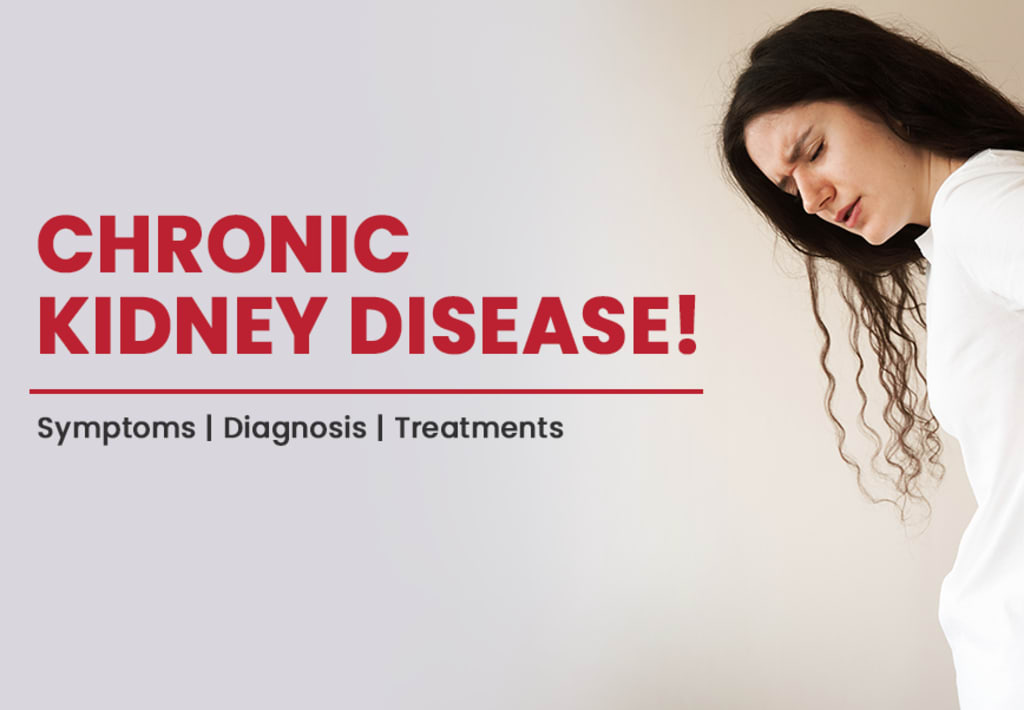Can kidney disease be cured?
Can I live a long life with kidney disease?

### Can Kidney Disease Be Cured?
**Introduction**
Kidney disease is a global health issue affecting millions of people. With its subtle onset and often serious consequences, many patients and their loved ones wonder: Can kidney disease be cured? Understanding this complex question requires a deep dive into the nature of kidney disease, its types, and the advancements in medical science aimed at tackling it.
**Understanding Kidney Disease**
Kidney disease encompasses a range of conditions affecting the kidneys' ability to function properly. The kidneys are crucial for filtering waste from the blood, balancing body fluids, and regulating various bodily functions. When the kidneys are damaged or their function deteriorates, it can lead to chronic kidney disease (CKD) or acute kidney injury (AKI).
1. **Chronic Kidney Disease (CKD)**: CKD is a long-term condition where the kidneys gradually lose function. It often progresses slowly over years, and in its early stages, patients might not notice symptoms. Common causes include diabetes, hypertension, and glomerulonephritis.
2. **Acute Kidney Injury (AKI)**: AKI is a sudden, often reversible, decline in kidney function. It can be caused by factors such as severe infections, dehydration, or certain medications. While AKI can be serious, prompt treatment can often restore kidney function.
**Can Kidney Disease Be Cured?**
The answer to whether kidney disease can be cured depends on the type and stage of the disease.
### Acute Kidney Injury (AKI)
For AKI, the prognosis is often positive, especially with early intervention. Many cases of AKI are reversible once the underlying cause is addressed. For example, treating an infection or rehydrating a patient can restore kidney function. However, severe or prolonged AKI can sometimes lead to permanent damage, transitioning into CKD.
### Chronic Kidney Disease (CKD)
CKD presents a more challenging scenario. Currently, there is no cure for CKD, especially in its advanced stages. However, the progression of CKD can be slowed, and symptoms managed effectively with proper treatment and lifestyle changes.
1. **Early Stages of CKD**: In the initial stages, interventions such as controlling blood pressure, managing blood sugar levels, and adopting a healthy diet can significantly slow the progression of CKD. Medications like ACE inhibitors or ARBs are commonly used to protect kidney function.
2. **Advanced Stages of CKD**: In later stages, when kidney function drops significantly, options become limited. At this point, treatments focus on managing symptoms and complications. Dialysis or kidney transplantation are the primary treatments for end-stage kidney disease (ESKD), the final stage of CKD.
### Emerging Research and Future Prospects
Despite the challenges, there is hope on the horizon. Advances in medical research are paving the way for potential breakthroughs in kidney disease treatment.
1. **Regenerative Medicine and Stem Cell Therapy**: Researchers are exploring the potential of stem cells to repair and regenerate damaged kidney tissues. While this is still in experimental stages, it holds promise for the future.
2. **Gene Therapy**: With the advent of gene-editing technologies like CRISPR, there is ongoing research into correcting genetic mutations that cause certain kidney diseases. This approach could potentially prevent the progression of these diseases.
3. **Artificial Kidneys**: Innovations in bioengineering are leading to the development of wearable artificial kidneys and bioartificial kidney devices. These could revolutionize the treatment for ESKD, offering more freedom and quality of life compared to traditional dialysis.
4. **Precision Medicine**: Tailoring treatments to individual genetic profiles and specific disease mechanisms can improve the effectiveness of interventions and slow disease progression.
**Conclusion**
While a complete cure for chronic kidney disease remains elusive, significant strides are being made in understanding and managing the condition. For acute kidney injury, recovery is often possible with timely treatment. For chronic kidney disease, early detection, lifestyle changes, and medical interventions can help manage and slow its progression.
The future of kidney disease treatment looks promising with advancements in regenerative medicine, gene therapy, and artificial kidney technologies. These innovations offer hope for more effective treatments and, possibly, cures in the years to come.
**Introduction**
Receiving a diagnosis of kidney disease can be daunting, often leading to concerns about life expectancy and quality of life. However, with modern advancements in medical treatment and lifestyle management, living a long and fulfilling life with kidney disease is increasingly possible. This blog post explores how you can optimize your health and well-being despite a kidney disease diagnosis.
**Understanding Kidney Disease**
Kidney disease occurs when your kidneys are damaged and unable to filter blood effectively. This can lead to the buildup of waste products in your body, potentially causing serious health problems. Kidney disease is typically categorized into two main types:
1. **Chronic Kidney Disease (CKD)**: A progressive condition where kidney function deteriorates over months or years. Commonly caused by diabetes, high blood pressure, and other chronic conditions, CKD can range from mild (stage 1) to severe (stage 5, or end-stage kidney disease - ESKD).
2. **Acute Kidney Injury (AKI)**: A sudden reduction in kidney function, usually due to injury or illness. AKI can be reversible with prompt treatment but may lead to chronic problems if not managed effectively.
**Living Well with Kidney Disease**
Living with kidney disease doesn’t mean life is over. Many individuals with kidney disease lead long, active lives. Here’s how you can manage the condition and improve your quality of life:
### 1. **Early Detection and Regular Monitoring**
Early detection of kidney disease is crucial for effective management. Regular check-ups with your healthcare provider can help monitor your kidney function and catch any potential issues early. Blood tests, urine tests, and imaging studies are common diagnostic tools.
- **Regular Screenings**: Especially if you have risk factors like diabetes, high blood pressure, or a family history of kidney disease.
- **Know Your Numbers**: Keep track of your blood pressure, blood sugar levels, and kidney function tests (e.g., GFR and creatinine levels).
### 2. **Lifestyle Modifications**
Adopting a healthy lifestyle is fundamental in managing kidney disease and enhancing longevity.
- **Balanced Diet**: Follow a kidney-friendly diet low in sodium, phosphorus, and protein. Consult a dietitian for personalized advice.
- **Stay Active**: Regular physical activity helps control blood pressure, manage weight, and improve overall health. Aim for at least 150 minutes of moderate exercise per week.
- **Quit Smoking**: Smoking can worsen kidney disease and increase cardiovascular risk. Seek support to quit if needed.
- **Limit Alcohol**: Excessive alcohol can harm your kidneys and overall health. Drink in moderation, if at all.
### 3. **Medication Adherence**
Medications play a critical role in managing symptoms and slowing the progression of kidney disease. Ensure you take all prescribed medications as directed.
- **Blood Pressure Medications**: ACE inhibitors or ARBs are often used to protect kidney function.
- **Blood Sugar Control**: If you have diabetes, managing your blood sugar levels is vital to prevent kidney damage.
- **Cholesterol Management**: Statins and other medications can help reduce cardiovascular risks associated with kidney disease.
### 4. **Regular Medical Care**
Having a reliable healthcare team, including a nephrologist (kidney specialist), is essential. They can provide specialized care tailored to your condition and help you navigate the complexities of kidney disease management.
- **Follow-up Appointments**: Regular visits to monitor your condition and adjust treatments as needed.
- **Vaccinations**: Stay updated on vaccinations to reduce the risk of infections, which can be more severe for those with kidney disease.
### 5. **Mental and Emotional Well-being**
Living with a chronic condition can be stressful. Maintaining mental and emotional health is equally important.
- **Support Networks**: Engage with support groups, family, and friends who understand your journey.
- **Counseling**: Professional counseling can help you cope with anxiety, depression, or stress related to your diagnosis.
- **Mindfulness Practices**: Techniques such as meditation, yoga, or deep breathing can reduce stress and improve overall well-being.
### 6. **Advanced Treatments and Dialysis**
For those with advanced CKD or ESKD, treatments like dialysis or kidney transplantation offer life-extending options.
- **Dialysis**: Hemodialysis and peritoneal dialysis can replace kidney function to filter waste from the blood.
- **Kidney Transplant**: Transplantation can offer a long-term solution, potentially restoring near-normal kidney function. Discuss with your doctor if this is a suitable option for you.
**Hope and Future Prospects**
Advances in medical research and treatment are continuously improving the outlook for individuals with kidney disease. From new medications to innovative therapies and technologies, the future holds promise for better management and quality of life.Kidney Disease Solution Reviews
- **Research and Innovations**: Breakthroughs in regenerative medicine, artificial kidneys, and personalized medicine are on the horizon.
- **Preventive Strategies**: Ongoing research into the prevention of kidney disease and early intervention strategies aims to reduce the incidence and impact of the disease.
**Conclusion**
Yes, you can live a long life with kidney disease. It requires commitment, lifestyle adjustments, and ongoing medical care, but many people with kidney disease lead fulfilling lives. By taking proactive steps, staying informed, and working closely with your healthcare team, you can manage your condition effectively and enjoy a good quality of life.
About the Creator
peter
Content about cars, motorbikes, technology, news
Enjoyed the story? Support the Creator.
Subscribe for free to receive all their stories in your feed. You could also pledge your support or give them a one-off tip, letting them know you appreciate their work.






Comments
There are no comments for this story
Be the first to respond and start the conversation.